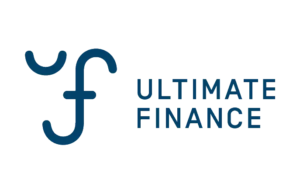Commercial Property Investment Finance
Long-term finance for investment in commercial property
Commercial Property Investment Finance
Commercial Property Investment Finance facilitates the acquisition or refinancing of a diverse range of commercial properties, from office buildings and retail spaces to warehouses, industrial units, and more, catering specifically to the needs of the commercial property investor. This asset class presents unique considerations, including finding suitable tenants, negotiating new leases and renewals, and securing appropriate financing. Notably, the options for financing commercial property investments are more limited compared to residential property investment and involve different assessment criteria and terms. A variety of Commercial Property Investment Finance solutions are available, each tailored to the distinct characteristics of commercial properties. In some cases, alternative financing options such as select Buy-To-Let Finance products, Commercial Mortgages, or Property Portfolio Finance for larger portfolios, may offer suitable solutions. Regardless of the chosen finance product, the primary source of repayment typically originates from the rental income generated by the property. Below, we provide essential information covering key considerations and critical factors in Commercial Property Investment Finance, designed to guide you before initiating the application process with us.
YOUR PROJECT, OUR MISSION
Supporting UK businesses with access to Finance That Fits























Properties, tenants and evolving demands
As businesses across various sectors navigate commercial, societal, and technological changes, these dynamics directly influence the types of properties they occupy and the lease commitments they seek. The evolving demands of tenants, shaped by these factors, are reshaping the commercial property landscape.
Environmental, social, and governance (ESG) considerations are increasingly critical, exerting both direct and indirect impacts on commercial properties, landlords, and tenants. The push towards sustainability, accelerated by legal mandates for green practices and energy efficiency, is redefining expectations and responsibilities in the commercial property market.
These shifts underscore the importance of aligning commercial property investment finance with specific property needs, tenant profiles, and ESG factors. Understanding these nuances is crucial in determining the most suitable lender and effectively structuring financing proposals. Recognizing and responding to market trends is key to successful investment and financing in the rapidly evolving world of commercial real estate.
Key characteristics to consider in commercial property investment include:
Property Type and Future Demand: Assessing current and anticipated demand for specific property types, such as the growing need for logistics and warehousing spaces driven by e-commerce.
Adaptability for Alternative Uses: Evaluating a property’s potential for repurposing to meet future market demands, ensuring resilience against market changes.
Location Stability: Considering a property’s location and its demand stability. Areas dependent on a single industry may pose higher risks.
Transport Infrastructure: Assessing accessibility via local transport networks, crucial for a property’s attractiveness.
Tenant Covenant Strength: The financial strength and stability of existing tenants are vital for investment security.
Lease Type and Duration: The nature of leases, including their length and terms, affects income predictability.
Management Intensity: Recognizing the operational demands of properties like industrial or office parks with multiple small tenants.
Taking into account important factors such as these is crucial for aligning property investment finance with the borrower’s needs. Effective presentation to lenders is key in securing the right financial backing. At Fit To Lend, we’re committed to being a valuable partner in this process, dedicated to delivering the solutions you need.
The Lenders View
Lenders exercise a high degree of diligence when assessing commercial property finance applications, given the distinct nature of these investments. Here are some things that lenders may scrutinize when assessing applications for Commercial Property Investment Finance:
Financial health and viability:
Lenders closely examine the financial health of commercial properties, considering not just current loan-to-value ratios and rental income but also future demand trends. They assess how these factors might impact rental yields and the property’s ability to cover loan repayments. Adaptability of the property for alternative uses, which can ensure sustained income in changing market conditions, may also be a key consideration.
The tenant, the location, demand, and occupancy history:
The location stability and transport infrastructure are critical in determining the attractiveness and demand for a commercial property. Lenders evaluate the demand for specific property types in the area, considering how evolving societal trends and local economic factors might affect tenant retention and property occupancy history. The strength of the tenant covenant and the duration of leases are also scrutinised to assess the risk of void periods and income stability.
Management experience and expertise:
In this rapidly changing environment, a borrower’s expertise in managing commercial properties, especially in terms of adapting to new market trends and esg requirements, is increasingly important. Lenders look favourably on applicants who demonstrate an understanding of these dynamics and/ or who have a solid plan for managing their properties.
Valuer’s insights and analysis:
The role of the valuer has become pivotal in commercial property finance. Lenders rely heavily on the valuer’s expertise to gauge market demand, risks associated with the property type, market rent values, and the strengths and weaknesses of the tenant mix. Their assessments also cover planning matters and other crucial factors that significantly influence the lender’s decision-making process.
Income generation and asset liquidity:
Lenders focus on the property’s ability to generate income, factoring in the impact of current market trends and the potential for future demand shifts. The property’s liquidity, influenced by factors such as location stability and adaptability for various uses, is evaluated to gauge its resale value and exit strategy viability.
Licensing and planning consent:
For properties that have been converted, extended, or have a specific commercial use, lenders or their solicitors will confirm that appropriate planning consents are in place. Energy Performance Certificate (EPC) requirements are becoming more stringent, and lenders will have expectations regarding the compliance of the property with these standards.
Mortgage Types
Navigating through the array of financing options for commercial properties can be a complex endeavor, but don’t worry – we’re here to help.
It’s important to note that many products in the market can fund commercial properties, even if they are not specifically branded as such. For instance, certain Buy To Let Mortgages or Commercial Mortgages might be well suited. Additionally, if your property is part of a larger portfolio, Property Portfolio Finance could offer a consolidated solution, simplifying your holdings under one loan facility.
Below is an overview of the mortgage types you might consider for a commercial property investment:
Interest-Only Mortgages:
Common in commercial property financing, these mortgages require the payment of only the interest each month. This can be particularly beneficial for cash flow management in properties where rental yields are typically higher. The capital is usually repaid through refinancing or the property’s sale at the end of the term.
Repayment Mortgages:
Involving monthly payments of both interest and capital, repayment mortgages lead to an unencumbered property at the end of the term. This could be a strategic choice for long-term investors focused on building equity.
Fixed-Rate Mortgages:
Offering an interest rate that remains constant for a set period (e.g., 2, 5, or 10 years), fixed-rate mortgages provide predictability in financial planning, shielding you from market fluctuations during the fixed term.
Variable-Rate Mortgages:
With rates that can change over time, these mortgages are aligned with current market conditions, offering the potential for lower rates but also the risk of rate increases.
Tracker Mortgages:
These mortgages track an external rate, like the Bank of England base rate, plus a set margin. They offer transparency and can be advantageous when external rates are low.
Discount Mortgages:
Starting with a discount on the lender’s standard variable rate, discount mortgages can reduce initial costs, potentially benefiting short-term investment strategies.
At Fit To Lend, we recognize that each client and each investment is unique, necessitating a financing solution that is carefully considered and well matched. This is why a discussion about your specific requirements is crucial. Let’s start a conversation now about how we can assist you.
The Application, Approval, and Completion Processes
The application process for Commercial Property Investment Finance involves thorough preparation and presentation of the necessary documentation. Fit to Lend offers comprehensive support throughout this journey, beginning with an in-depth assessment of the borrower’s circumstances, needs, and plans. We specialise in identifying the most suitable product that aligns with the borrower’s objectives.
Our role extends beyond mere facilitation; we strive to craft a credible and compelling proposal to enhance the likelihood of lender approval and to obtain an offer on terms most favourable to our client. By remaining actively involved at every stage — liaising with borrowers, lenders, valuers, and solicitors — we navigate the complexities of the process to meet your completion timeline. Our commitment is to ensure that from the initial application to final completion, every step is handled with diligence and expertise. This approach minimises delays and aligns with your investment goals, ensuring a smooth transition throughout the financing journey.
working with lenders, for borrowers
Supporting UK businesses with access to Finance That Fits
Other Finance Solutions
questions
&
Answers
Yes, we charge a transparent and fair fee of 0.5% that's typically payable at the end when the loan completes, and in our opinion borrowers should be extra cautious if a broker ever offers to work without charging fee. In these circumstances the broker's income may be based solely on commissions paid by lenders, and commissions vary significantly between different lenders, so the borrower needs to be confident that the broker is not inappropriately influenced by lender commissions. It is critically important that the broker has the borrowers best interests front & centre when presenting choices and making recommendations. Our fee is modest, and if you take a look at what it represents as a portion of borrowing costs over the loan term, you'll see why we're confident it will be far outweighed by the savings we achieve for borrowers and the value of the close support and guidance we provide.
Both experienced investors and newcomers to commercial property investment and both individuals and companies can apply.
Properties that are let, or intended to be let, to commercial tenants.
Rates vary based on market conditions, property type, and borrower profile.
Check Commercial Property Investment Finance current pricing.
We’ll help with that, first by assessing individual requirements and goals, and then by matching these to the best available finance options. Apply here for Commercial Property Investment Finance.
make
an
enquiry
News, Views And Finance Clues






working with lenders, for borrowers
Supporting UK businesses with access to Finance That Fits
Other Commercial Finance Solutions
More News, Views And Finance Clues






EXPERT EVALUATION, EFFECTIVE EXECUTION
Supporting UK businesses with access to Finance That Fits






































